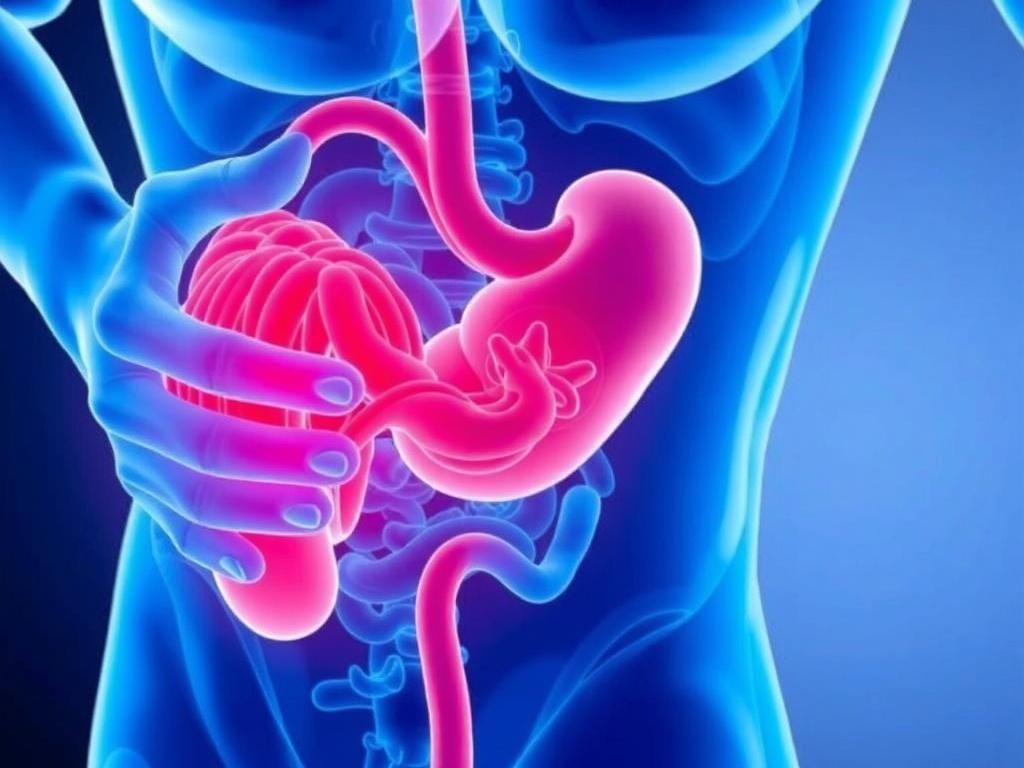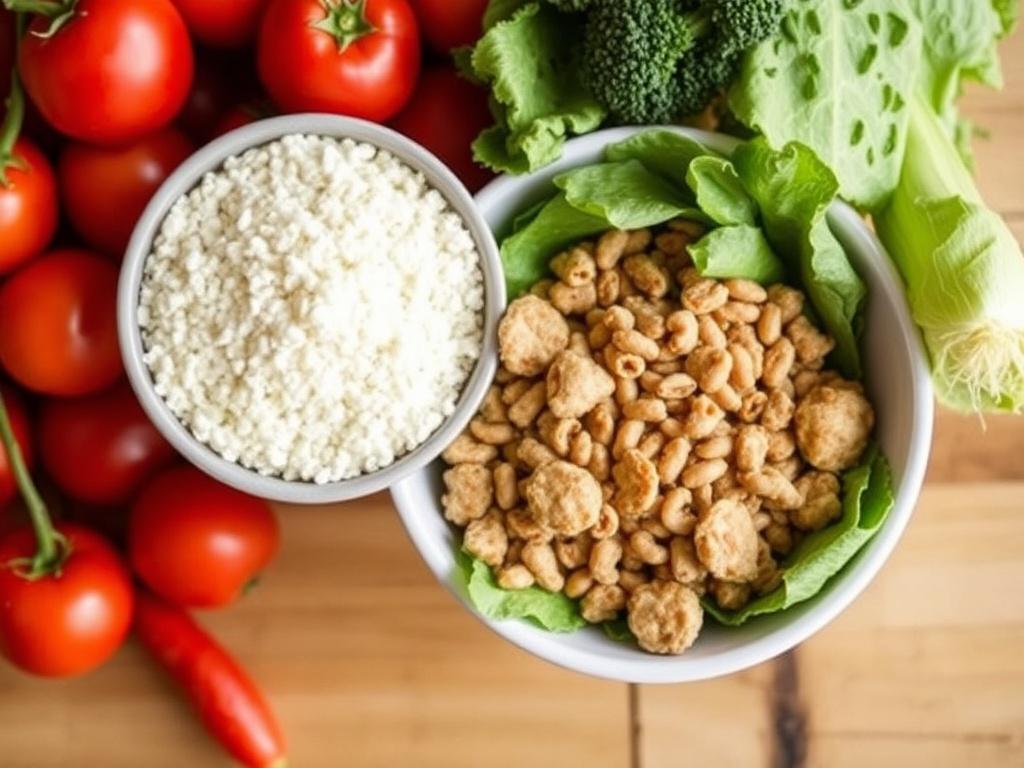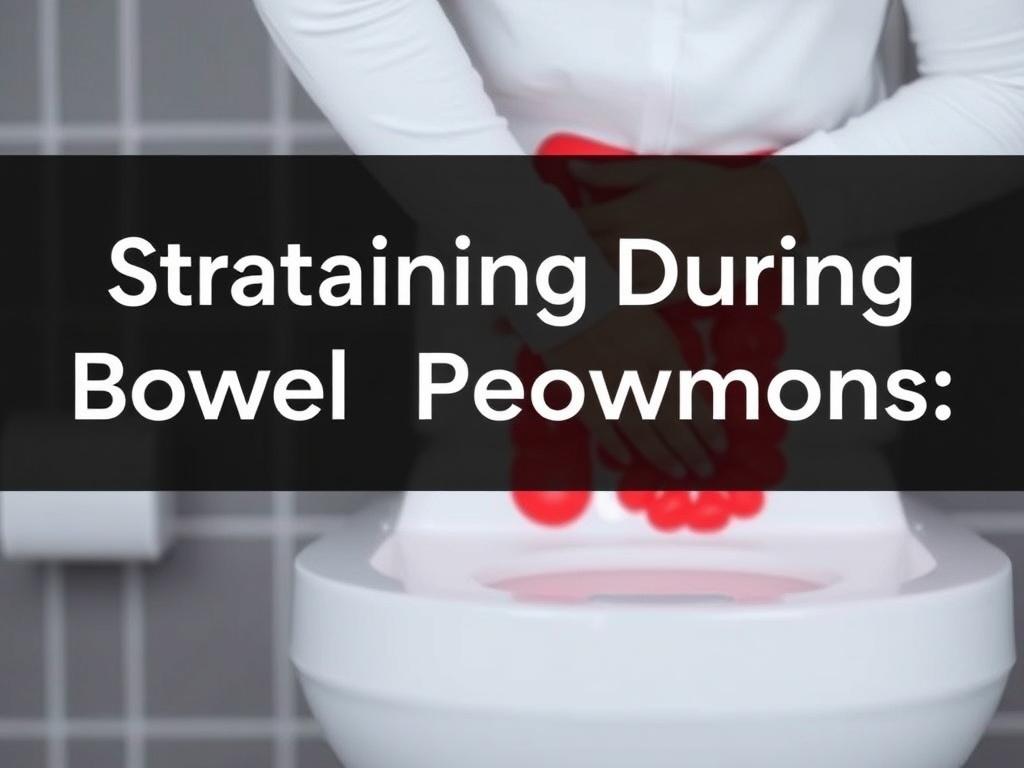Hemorrhoids are a surprisingly common condition that many people hesitate to talk about, but they can cause significant discomfort and disruption to daily life. Whether you experience occasional irritation or painful flare-ups, understanding hemorrhoids, how to prevent them, and the treatments available can make a world of difference. In this article, we’ll explore everything you need to know about hemorrhoids, breaking down prevention methods, effective treatments, and tips for managing symptoms so you can get back to feeling your best. Let’s dive into what hemorrhoids are, why they occur, and how simple lifestyle changes combined with the right treatment can offer relief.
What Are Hemorrhoids?
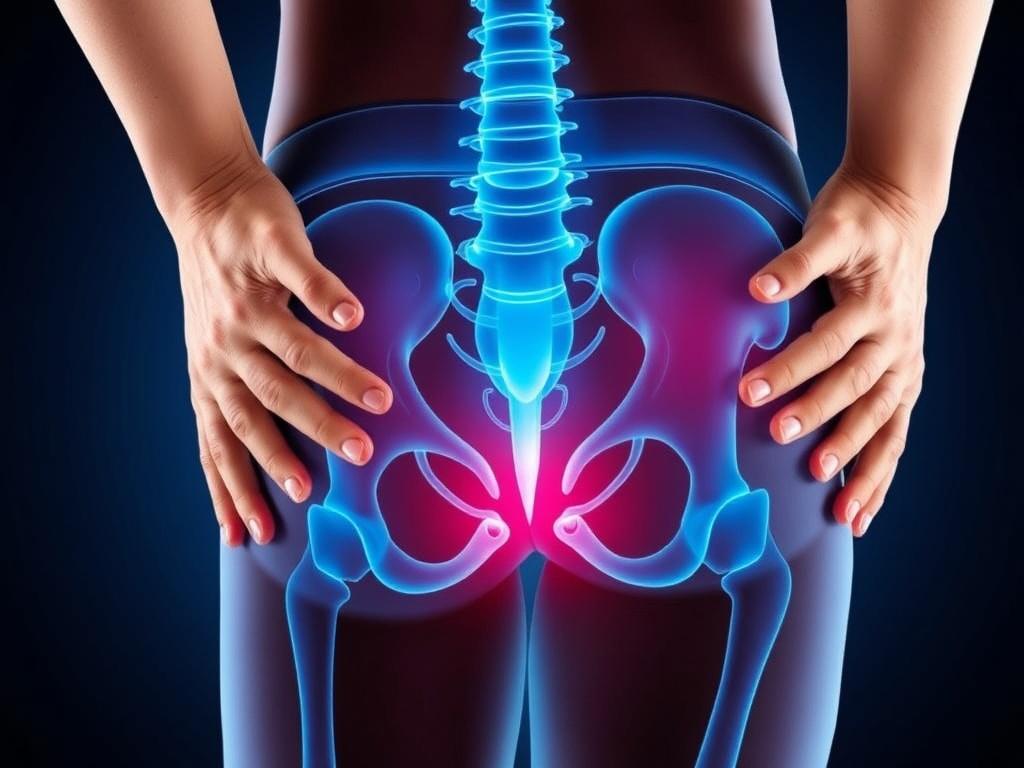
Hemorrhoids, sometimes called piles, are swollen veins in the lowest part of your rectum and anus. When these veins become inflamed or irritated, they can cause itching, pain, and sometimes bleeding. They are often classified into two types: internal hemorrhoids, which develop inside the rectum, and external hemorrhoids, which form under the skin around the anus.
Most people will experience hemorrhoids at some point in their lives, especially as they age. Pregnancy, chronic constipation, prolonged sitting, and even straining during bowel movements can increase your risk. While they can be painful or uncomfortable, hemorrhoids are usually not serious and can be managed effectively with the right care.
Common Causes and Risk Factors
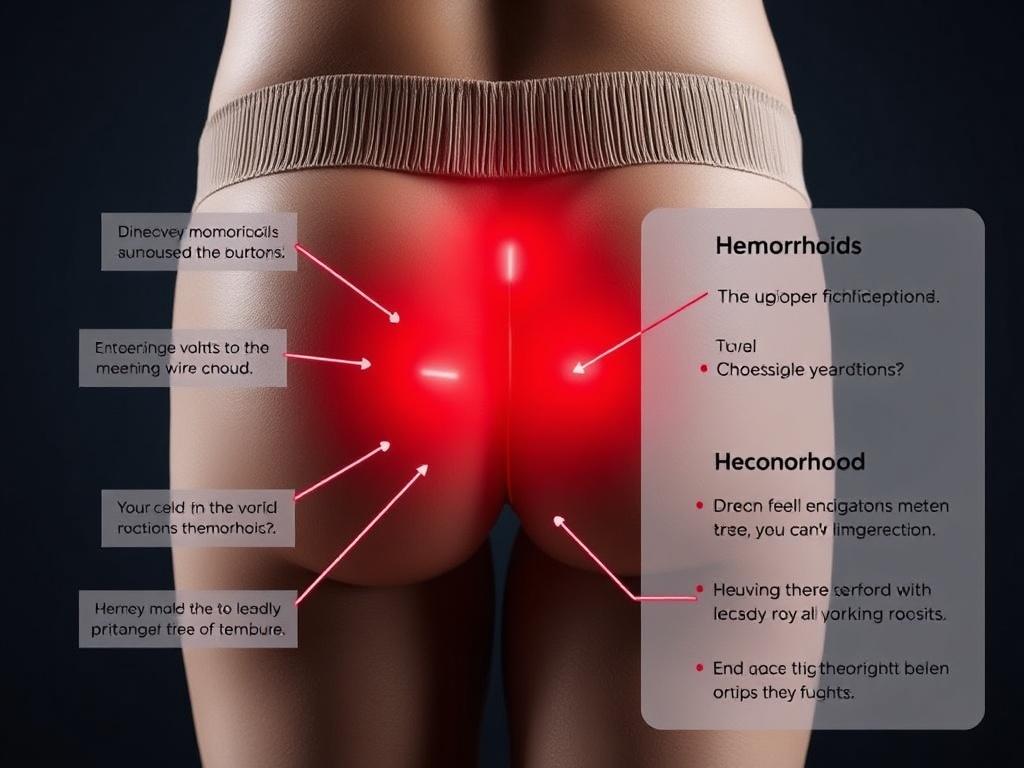
Understanding what causes hemorrhoids is key to preventing them. The pressure on veins in the rectal area can result from various factors, including lifestyle and health issues. Here are some common causes and risk factors:
- Constipation and straining: Pushing hard during bowel movements puts extra pressure on rectal veins.
- Pregnancy: Increased pressure from the growing uterus along with hormonal changes can cause hemorrhoids.
- Prolonged sitting: Sitting for long periods, especially on the toilet, increases pressure in the anal region.
- Obesity: Excess weight adds pressure on the pelvic veins.
- Heavy lifting: Frequent lifting or straining can lead to hemorrhoids.
Why Prevention Matters
Although hemorrhoids often improve with time, prevention is much better than cure. Left untreated, they can worsen and lead to complications like thrombosis or persistent bleeding. Preventing hemorrhoids is largely about reducing the triggering factors by making simple, everyday lifestyle adjustments.
Effective Ways to Prevent Hemorrhoids
0
Prevention focuses mainly on maintaining smooth bowel movements and reducing pressure around the anus. Here are some practical prevention strategies:
1. Diet and Hydration
One of the most important factors in preventing hemorrhoids is eating a high-fiber diet. Fiber softens the stool and increases its bulk, making bowel movements easier and less likely to cause straining. Foods rich in fiber include:
| Food Type | Examples |
|---|---|
| Fruits | Apples, pears, berries, oranges |
| Vegetables | Leafy greens, broccoli, carrots, peas |
| Whole Grains | Oats, brown rice, whole wheat bread, barley |
| Legumes | Lentils, beans, chickpeas |
Drinking plenty of water throughout the day is equally important as it helps fiber work efficiently and prevents dehydration, which can harden stools.
2. Healthy Bathroom Habits
Many people unknowingly contribute to hemorrhoids with how they approach toilet time:
- Avoid straining or sitting for prolonged periods on the toilet, which increases pressure on anal veins.
- Respond promptly to the urge to have a bowel movement to avoid stool becoming hard and dry.
- Consider using a footstool to elevate your feet while sitting on the toilet, which can help position the rectum for easier passage.
3. Regular Exercise
Physical activity keeps your digestive system moving efficiently, reducing the risk of constipation and hemorrhoids. Aim for at least 30 minutes of moderate exercise most days of the week. Walking, swimming, and yoga are excellent low-impact options that promote blood circulation without adding strain.
4. Weight Management
Maintaining a healthy weight reduces the strain on pelvic and rectal veins. Combining a balanced diet with regular exercise can help keep your weight in check and lower your risk of hemorrhoids.
Treatment Options for Hemorrhoids

Even if you practice excellent prevention, hemorrhoids can still develop. The good news is that many treatments exist, ranging from home remedies to medical interventions. The key is to address symptoms early and seek help if they worsen.
Home Remedies
For many people, simple self-care can relieve pain and discomfort:
- Sitz Baths: Sitting in a warm bath for 10 to 15 minutes several times a day can soothe inflammation and improve blood flow.
- Cold Compresses: Applying ice packs or cold compresses helps reduce swelling and numb pain.
- Over-the-Counter Creams and Suppositories: Products containing hydrocortisone or witch hazel may reduce itching and swelling when used as directed.
- Good Hygiene: Keeping the anal area clean with gentle wipes or warm water can prevent irritation.
When to Contact a Doctor
If symptoms persist beyond a week, are severe, or if you notice significant bleeding, consult with a healthcare provider. They might recommend further treatments such as:
- Rubber Band Ligation: A procedure where a small band is placed around the base of an internal hemorrhoid to cut off its blood supply, causing it to wither.
- Sclerotherapy: Injection of a solution to shrink hemorrhoids.
- Infrared Coagulation: Using heat to cause scar tissue and shrink hemorrhoids.
- Surgery: In severe cases, hemorrhoidectomy (surgical removal) may be necessary.
Medications and Pain Management
Besides topical treatments, oral pain relievers like acetaminophen or ibuprofen may help manage discomfort. However, it’s important to use medications as recommended and not to rely solely on painkillers without addressing underlying causes.
Lifestyle Tips to Ease Symptoms
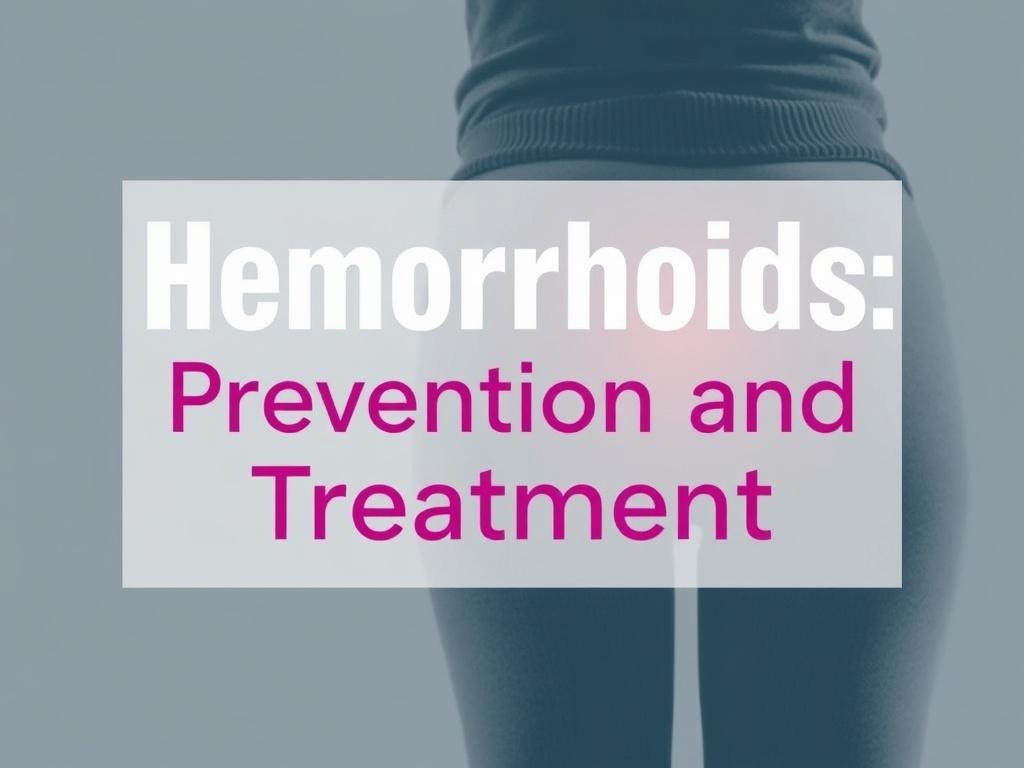
In addition to specific treatments, certain lifestyle habits support faster healing and prevent flare-ups:
- Wear Loose, Breathable Clothing: Avoid tight clothes that trap moisture and cause irritation.
- Avoid Heavy Lifting: Minimize lifting heavy objects to reduce strain on your abdomen.
- Limit Sitting Time: Take breaks to stand or walk if your job involves sitting for hours.
- Practice Stress Relief Techniques: Chronic stress can affect digestion, so activities such as deep breathing, meditation, or gentle exercise can help.
Myths and Misconceptions About Hemorrhoids
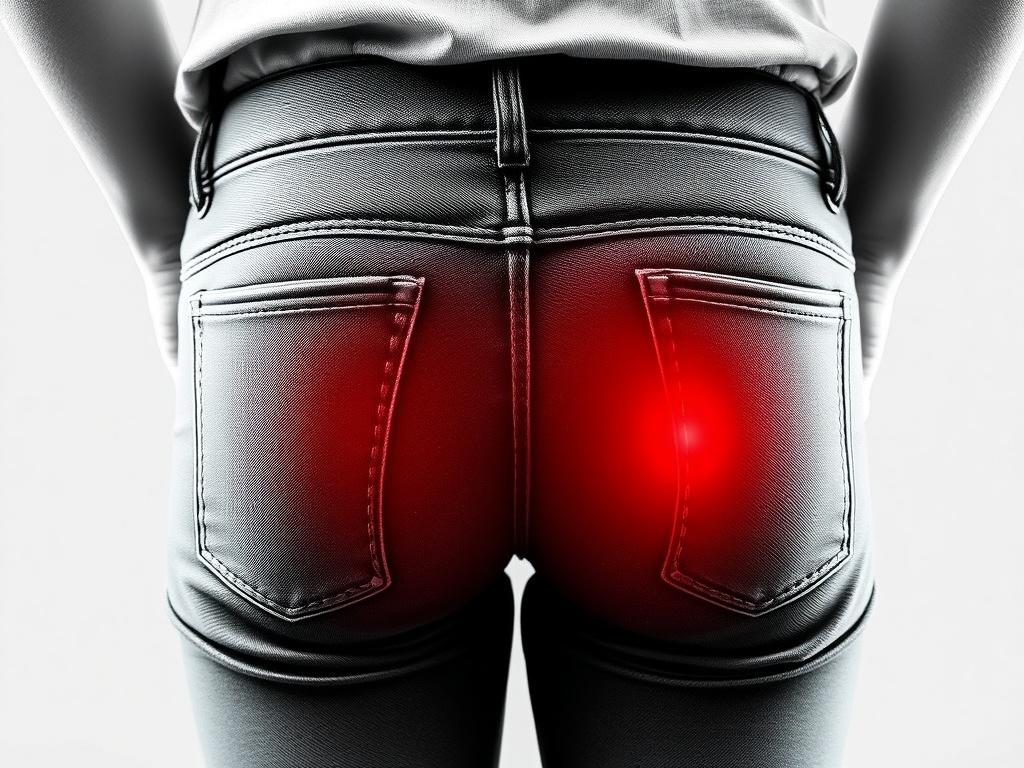
There’s a lot of misinformation surrounding hemorrhoids that can add unnecessary worry. Let’s clear up some common myths:
| Myth | Fact |
|---|---|
| Only older adults get hemorrhoids. | While more common with age, hemorrhoids can affect people of any age. |
| Hemorrhoids always require surgery. | Many cases improve with lifestyle changes and home treatments. |
| Bleeding during bowel movements always means cancer. | While bleeding should always be evaluated, hemorrhoids are a common cause and much less serious. |
| Spicy foods cause hemorrhoids. | Spicy foods don’t cause hemorrhoids but may irritate existing conditions. |
Understanding the Emotional Impact
0
Beyond the physical discomfort, living with hemorrhoids can sometimes affect mental well-being. Embarrassment or anxiety about symptoms might prevent people from seeking timely care. Remember, hemorrhoids are a common medical condition, and asking for help is a sign of strength. Open conversations with your doctor or support groups can provide reassurance and effective guidance.
Supporting Loved Ones
If someone close to you is dealing with hemorrhoids, offering understanding and encouragement can make all the difference. Small gestures like suggesting gentle remedies, or accompanying them to doctor visits if they wish, help reduce feelings of isolation.
When to See a Specialist
0
If you experience persistent pain, heavy bleeding, or if other digestive symptoms like diarrhea or changes in bowel habits accompany hemorrhoids, it’s important to consult a proctologist or gastroenterologist. Sometimes, symptoms can overlap with other conditions requiring specialized care.
Summary Table: Prevention and Treatment at a Glance
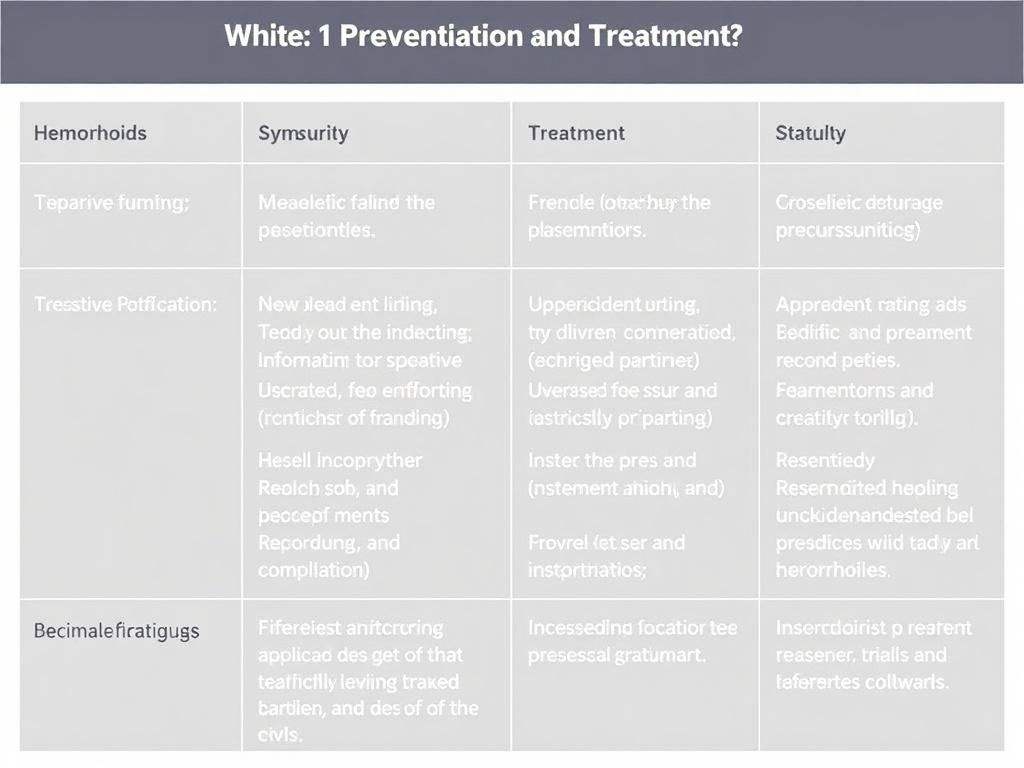
| Aspect | Prevention | Treatment |
|---|---|---|
| Diet | High-fiber foods, stay hydrated | None directly, but helps prevent recurrence |
| Bathroom Habits | Avoid straining, respond to urge quickly | Use creams, sitz baths for symptom relief |
| Exercise | Regular moderate activity | Encouraged to improve digestion |
| Medical Procedures | Not applicable | Band ligation, sclerotherapy, surgery if needed |
| Lifestyle | Maintain healthy weight, avoid prolonged sitting | Modify activities during flare-ups |
Empowering Yourself Through Knowledge
Taking control of your health starts with understanding conditions like hemorrhoids and knowing your options. Don’t let fear or embarrassment hold you back from seeking information or care. With modern medicine, combined with practical prevention strategies and simple home treatments, hemorrhoids can be managed effectively, allowing you to live comfortably.
Conclusion
0
Hemorrhoids may be a common and often inconvenient condition, but they don’t have to control your life. By embracing prevention strategies — like a fiber-rich diet, proper hydration, regular exercise, and mindful bathroom habits — you can significantly reduce your risk. When hemorrhoids do occur, a variety of home remedies and medical treatments offer relief and promote healing. It’s important to listen to your body, seek professional advice when needed, and tackle misconceptions head-on. With patience and care, managing hemorrhoids is entirely doable, helping you reclaim comfort and confidence every day.
Читайте далее:
